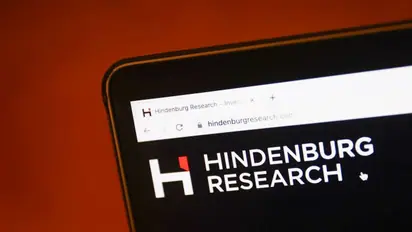Hindenburg, the firm that accused Adani Group, now claims Roblox inflated user numbers by 42%; details here

Synopsis
Roblox, the widely popular online gaming platform known for its extensive user base and immersive virtual worlds, is facing serious allegations of inflating its daily user statistics.
Roblox, the widely popular online gaming platform known for its extensive user base and immersive virtual worlds, is facing serious allegations of inflating its daily user statistics. The claims come from Hindenburg Research, an activist short-selling investment firm, which has accused Roblox of overstating its user numbers by as much as 42%.
This is the latest in a series of high-profile reports from Hindenburg, which previously shook global markets with its January 2023 report accusing India's Adani Group of stock manipulation and improper use of offshore tax havens.
In its report on Roblox, Hindenburg alleges that the platform has been misleading investors by artificially inflating its daily active user count. According to the firm, Roblox has been counting alternate (alt) accounts and bot activity as part of its user base, a practice that distorts the true number of unique users engaging with the platform.
Hindenburg claims that Roblox is fully capable of differentiating between individual users and bots or alt accounts, but deliberately chooses not to in its official reporting.
The report states that while Roblox does not claim daily active users (DAUs) are unique individuals, it presents the figures in a way that can mislead investors into thinking they represent real, human engagement at much higher levels than is actually the case.
To substantiate its claims, Hindenburg hired a technical consultant to monitor the activity of the top 7,200 games on Roblox. The results of this analysis reportedly show that the average daily engagement for unique users was much lower than Roblox had publicly reported. Moreover, the analysis uncovered "zombie" engagement hours caused by bot activity, which could artificially inflate Roblox's average engagement numbers.
In addition to the alleged financial misrepresentations, Hindenburg's report raises significant concerns about Roblox's efforts to protect children on its platform. According to the researchers, fake accounts created to mimic children were quickly exposed to sexually explicit content, raising questions about the adequacy of Roblox's content moderation and child safety measures.
The platform, which boasts a large user base of children and teenagers, has faced criticism in the past for not doing enough to prevent harmful content from appearing in games or chats. These new findings could intensify scrutiny from regulators and parents alike.
Roblox has forcefully denied the allegations put forward by Hindenburg Research, dismissing them as "simply misleading." In a statement released following the report, Desiree Fish, Roblox’s chief communications officer, argued that the report was driven by Hindenburg’s financial interests as a short seller and was not a fair reflection of Roblox’s business model or results.
“We totally reject the claims made in the report,” Fish said in a statement to The Verge. “The financial claims made by Hindenburg Research are simply misleading. The authors are, admittedly, short sellers and have an agenda irrespective of the substance of Roblox’s business model and results.”
Hindenburg Research has previously influenced markets with its reports, most notably in the case of the Adani Group, which saw a dramatic $150 billion loss in market value following Hindenburg's accusations of financial misconduct.
Check the Breaking News Today and Latest News from across India and around the world. Stay updated with the latest World News and global developments from politics to economy and current affairs. Get in-depth coverage of China News, Europe News, Pakistan News, and South Asia News, along with top headlines from the UK and US. Follow expert analysis, international trends, and breaking updates from around the globe. Download the Asianet News Official App from the Android Play Store and iPhone App Store for accurate and timely news updates anytime, anywhere.